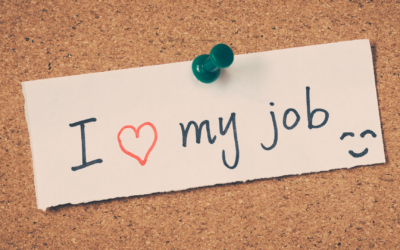IS IT POSSIBLE TO SAY NO AFTER YOU SAID YES ALREADY?

Is it possible to say NO after you said YES already? What Paulo Coelho says?
“When you say yes to others, make sure you are not saying no to yourself.”
YES is such a nice word, connected emotionally to the most important moments in our lives, bringing so much joy and abundance usually. It is mostly a desired positive expression. For sure you can easily name your best YES answers which have changed your life and made you happy.
But what about NO? Poor little negative syllable.
NO is actually a great word. It might look to have a negative connotation, but it is the handy and MAGIC WORD protecting you so much!
I have a friend; we can call her Mary. Mary is successful in her career. She is a very intelligent, good-looking, great mom of two sons, a loving wife, and a devoted pet carer of a dog and a cat. Everything is just fine about her. But… she simply cannot say NO.
She is not able to say NO to her boss, doesn’t matter, what kind of “mission impossible” task he is delegating – she takes it over.
She is never saying NO to her family, doesn’t matter, what kind of “ridiculous demands” they might serve (including dog and cat as well!).
Finding time for a coffee with friends or even time for herself to relax – is a luxury item she is not willing to afford.
I have serious doubts, if anyone told her, that using NO is fully legal, that it is not a crime or fraud.
A couple of NOs in good timing would make her life such an easy romantic movie – but instead of that, I am watching a thriller, whenever catching up with her…
Live the life you deserve
Do you have clarity about what you really want to do with your life and in your career? If you think that you could still reach more and be more happy, then this is your chance.
Do you see yourself in a mirror?
Turn your radar on when it reminds you of something. You might be running your life at a high speed, trying to please all around yourself.
You better start to think about the change of your approach – before you end up really sick and tired of everything… Burn-out risk is rising this way sky high – and it is a serious risk – you don’t need to take it.
“When you say yes to others, make sure you are not saying no to yourself.”
I love the quote of Paulo Coelho: “When you say yes to others, make sure you are not saying no to yourself.” – isn’t it a great start of your learning to use that simple word, which can protect your boundaries?
You might practice it slowly, especially when you are a similar “people-pleaser” as Mary is. I recommend safe practical rules – try to start with a stranger, a person you are meeting seldom, step-by-step before you get to close friends, important colleagues or boss, and keep the toughest ones like family members for the latest stage. Give it time. And how to do it? Let’s jump straight to the hardest example…
…how to say NO after saying YES. Tricky one, isn’t it?
Melody Wilding, LMSW, an executive coach and author of Trust Yourself: Stop Overthinking and Channel Your Emotions for Success at Work describes in her article in Harvard Business Review a situation when you are asked by your friend or colleague to participate in a project. You agree but later on, you realize, that you cannot contribute on the desired level, as you have other things to do. Details are not important, the principles are crucial, as they can be used in any situation. So, if you happen to be in such a trap, she recommends the following:
Whether you have overbooked yourself, realized you have a conflict, or otherwise can’t or don’t want to participate in a project, it’s essential to uncommit gracefully. Doing so will keep your reputation intact and your relationships strong.
6 TIPS ON HOW TO DO THAT
There are six tips to help you go about saying no after you’ve already said yes with tact and professionalism:
1) Consider the cost. Cost of both – YES & NO scenarios (and choose the less painful one).
2) Shift your perspective. Consider the positive traits you display when you back out gracefully. You exemplify strong prioritization, time management, and transparent communication — all qualities of powerful leadership.
3) Be diplomatic but truthful. Be assertive and clear without overexplaining. In other words, aim to be direct, thoughtful, and above all else, honest.
4) Preserve the relationship. Providing a short (and very honest!) explanation or justification as to your reasoning can help your withdrawal to be better received.
5) Offer an alternative. Maybe you redirect the person to a resource that can help them – a community, podcast, or training material – that can meet their needs or solve their problem.
6) Learn from it. …and try not to get into this situation again.
Little bonus against the guilty feeling
Still, feeling guilty when saying NO? This one might help;-) When I coach someone, I always take an example of the aeroplane onboard safety rules. When oxygen masks are falling from the deck above your seats, whom shall you serve first? YOURSELF, indeed! Helping others is step No. 2 – and not only in the aeroplane security rules. If you feel good, you simply have much more to share with others.
Still not sure, how to start with a gentle NO or how to simply set your very true priorities?
You need to know your actual life priorities, to be able to identify what to say NO to, right?
My colleague Lubica Kangas created a great online program Career and Life by Your Design. You can learn a lot there and start to live a great life without blue Mondays at unpleasant work… and one of the crucial topics is a lesson teaching you, how to optimally set your own priorities. Try our online course here.
With passionate regards ,-)

P.S. If you like this post, feel free to share it with your friends! You find the sharing buttons on the left side of the screen. And you will find more exciting posts like this also on our blog.
Live the life you deserve
Do you have clarity about what you really want to do with your life and in your career? If you think that you could still reach more and be more happy, then this is your chance.
Analyze your work
Our free exercise helps you to understand which activities drain our energy in your current job and shall be minimized in your future roles.

The Author
Darina Rössl is an experienced manager with a psychological background, she is co-founder of an Institute for employment assessment.
She knows the world of business as well as the corporate international environment, marketing, and communication, and she has offered all she has learned to NGOs, e.g., supporting children in crisis on the child helpline as well.
Darina works as an executive search and assessment consultant; she is fascinated with everything regarding the brain itself and people in general – their behavior, motivation, talents, and purposes, striving to support clients on the life path to joy and fulfillment.
On a personal note, Darina’s passion and source of energy are the sun, sea, scuba diving, and her small clever dog, accompanying her on her travel.
More relevant posts
LOVE YOUR JOB EVEN IF YOU DONT LIKE IT. HOW?
„ Love your job, but don´t love your company, because you may not know when your company stops loving you „
HOW TO SET AND ALSO FOLLOW-UP YOUR NEW YEAR RESOLUTIONS
NOW IT´S TIME TO MAKE NEW YEAR RESOLUTIONS!
Many people already set them up.
Are you able to say, that you love your job?
Have you ever asked yourself a question, where exactly is the difference between LIKE and LOVE? What Simon Sinek thinks?







